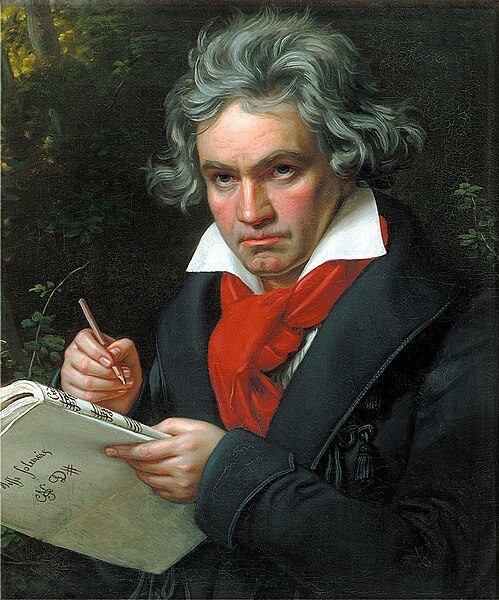 The Romanticism, which covered practically the whole 19th century, was the result of the society that appeared after the French Revolution that defending mankind's freedom above all things. In this period, the expression of individual feelings, desires, dreams and thoughts was one of the most important elements in artistic creation.
The Romanticism, which covered practically the whole 19th century, was the result of the society that appeared after the French Revolution that defending mankind's freedom above all things. In this period, the expression of individual feelings, desires, dreams and thoughts was one of the most important elements in artistic creation.
The aesthetic of Romanticism likes mystery, nature (savage nature, undiscovered by humans), storms that evoke strong feelings, tragedy... This can be easily seen in the paintings of this period, with lone figures, landscapes, storms...
 Music was considered the most important of all arts because of its power to evoke moods and feelings, and because of its abstraction. The composer, like the rest of the artists, was admired and considered a genius who was able to create music for the audience.
Music was considered the most important of all arts because of its power to evoke moods and feelings, and because of its abstraction. The composer, like the rest of the artists, was admired and considered a genius who was able to create music for the audience.
In this period, art emancipates completely. There is no need for a reason to create art or music, it is the need to create something new, to express oneself's feelings, the main justification to do art. This approach is summarized by the sentence "art for art's sake". As a result, music isn't going to be conditioned by external factors: there will be great formal and expressive freedom, with the melody as the main element.
There appeared both: small and intimate forms for piano and voice, and large spectacular forms like opera or symphonic music.
Nationalism was another important part of Romanticism: composers looked for inspiration in the folklore and individual characteristics of their countries, trying to find the elements that differentiate each region from the rest. This is going to have an impact on the music of each country, that will enrich with sonorities and rhythms particular of each country.
 Some of the most important composers of this period are Beethoven, Brahms, Tchaikovsky, Verdi, or Dvorak (to name just a few).
Some of the most important composers of this period are Beethoven, Brahms, Tchaikovsky, Verdi, or Dvorak (to name just a few).
Index of the unit:
